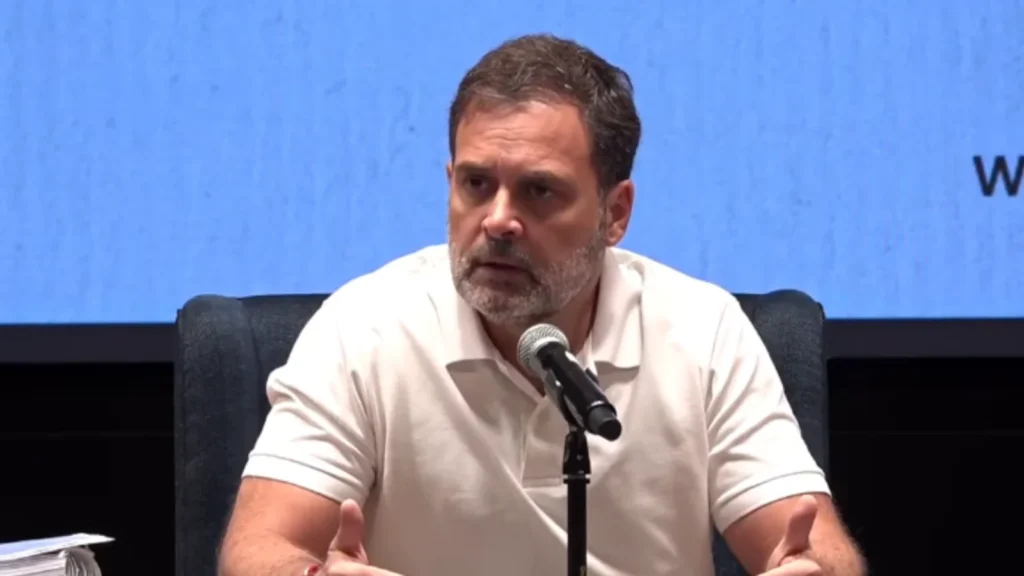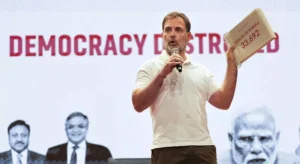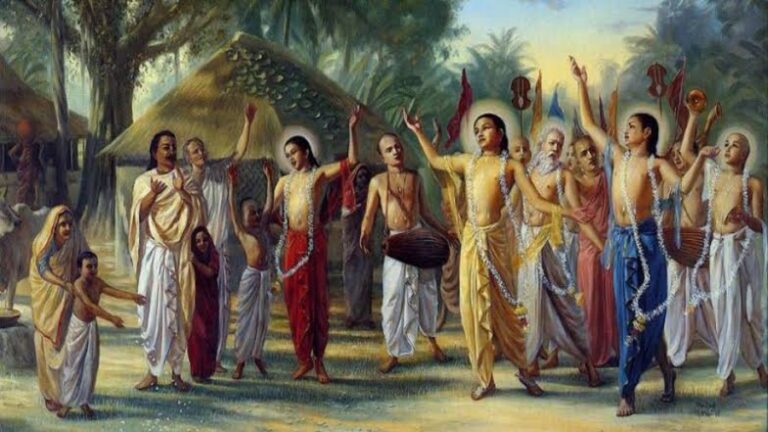
Congress leader Rahul Gandhi has alleged large-scale irregularities in India’s electoral process. He has stated that the Bharatiya Janata Party (BJP) and the ECI have enabled what he calls “vote theft.” Gandhi argues that discrepancies in voter rolls and a lack of transparency in electoral data compromised the 2024 general elections.
Gandhi has pointed specifically to the Mahadevapura constituency in Bengaluru Central, where BJP won by over 32,000 votes. According to his claims, Congress’s internal analysis found more than 100,000 questionable entries in the voter list. This included duplicate names, fake addresses, invalid photographs, and bulk registrations. He maintains that these findings were the result of months of examination of voter records.
Rahul Gandhi calls attention to flaws with the ECI

Speaking with visible urgency at a recent press conference, Gandhi claimed that more than one lakh votes were “stolen” to swing the Bengaluru Central seat. He called it a brazen act of “vote chori.” The opposition leader broke down the issue in simple terms. It wasn’t just numbers on a sheet but people’s voices being erased. Gandhi pointed out various discrepancies:
- Duplicate voters
- Fake and invalid addresses
- Large numbers of voters crammed under single addresses
- Mismatched photographs
- Misuse of Form 6 meant for new registrations.
To explain in detail, Gandhi stated that duplicate names like Gurkirat Singh Dang appeared in four booths. The person named Aditya Srivastava was registered in three states. More than 40,000 entries carried fake or invalid addresses such as “0.” He added that 80 voters were shown at a one-room house and 68 at a small brewery. Over 4,000 entries had blurred or missing photos. Form 6 was misused to add more than 33,000 suspicious names, including elderly people marked as first-time voters.
The ECI’s Role
Calling this an attack on people’s voices, he urged the Election Commission to publish the full voter list and release CCTV footage to rebuild trust. Linking this issue to Bihar, Gandhi invited seven people who were wrongly marked as “dead” to his Delhi home, where they showed documents proving they were alive, and with a touch of sarcasm he said he had “tea with dead people,” using humor to stress the intensity of this situation.
Another part of Gandhi’s criticism focuses on the Election Commission. He says that the body refused to provide voter rolls in a digital, machine-readable format, instead supplying thousands of pages of printed lists. In his view, this made verification unnecessarily difficult. The ECI, however, has not publicly confirmed or denied these specific claims (Indian Express)
Following his allegations, Gandhi and the Congress party launched a campaign against what they describe as “Institutionalised Vote Theft.” The campaign has included public marches, signature drives, and social-media outreach. Gandhi has also released videos intended to dramatize his claims, framing the issue as a matter of democratic rights.
Reactions and Counter-Positions to Rahul Gandhi
The BJP and the Election Commission have rejected Gandhi’s accusations, calling them politically motivated. Party leaders argue that Congress is attempting to explain electoral setbacks by questioning institutions rather than addressing voter sentiment. Meanwhile, senior Congress figures such as Shashi Tharoor have backed Gandhi, saying that the allegations are serious enough to warrant investigation.
Broader Implications
The debate reflects a growing political divide over the credibility of India’s electoral system. While Gandhi frames the issue as one of democratic accountability, his critics argue that such claims risk undermining public trust without sufficient evidence. As legal and parliamentary challenges continue, the question of how to ensure transparent elections remains at the forefront of India’s political discourse.
His stance has drawn strong reactions across the political spectrum. While Congress leaders like Kamal Nath and Jitu Patwari praised his campaign as essential for safeguarding democracy, BJP officials dismissed the allegations as politically motivated. In Karnataka, Congress leader B Ramanath Rai went further, urging the Election Commission to release video and digital records to help verify irregularities, especially in Mahadevapura. These moves underscore Gandhi’s attempt to shape the debate around electoral integrity as state elections approach, particularly in Bihar.
This is an ongoing story, stay tuned for more updates with The World Times.



